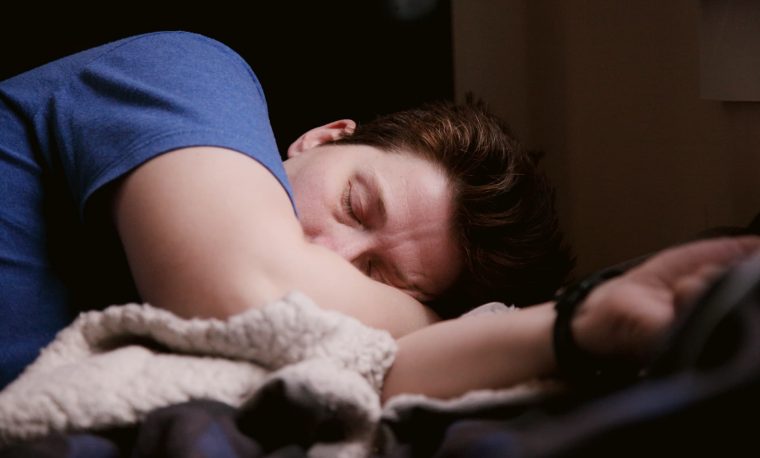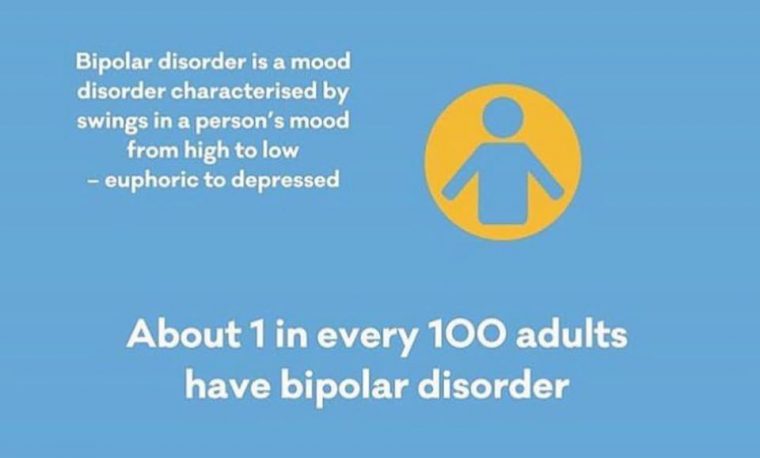Bipolar disorder
Bipolar disorder is a mental health condition that affects mood, characterised by severe mood swings that will range from one extreme to the other. Mood swings in bipolar disorder can be low or depressive, high or manic or a mix of depressed mood, with the restlessness and overactivity of a manic episode. These usually last several weeks or months and are far beyond what most of us experience.
Formally known as manic depression, bipolar disorder can be a lifelong struggle for sufferers.
With support and treatment, sufferers are able to manage their disorder and lead fulfilling lives.
Signs and symptoms of bipolar disorder
Signs and symptoms of bipolar disorder are usually grouped into two categories: depression and mania.
Depression
In clinical depression or bipolar disorder, depression is extreme. It goes on for longer and makes it difficult or impossible to deal with day-to-day life.
Common signs and symptoms of a depressive episode include:
Psychological:
- Feelings of unhappiness that don’t go away
- Feeling that you want to burst into tears for no reason
- Losing interest in things
- Being unable to enjoy things
- Feeling restless and agitated
- Losing self-confidence
- Feeling useless, inadequate and hopeless
- Feeling more irritable than usual
- Thinking of suicide
- Can’t think positively or hopefullY
- Finding it hard to make even simple decisions
- Difficulty in concentrating
Physical:
- Losing appetite and weight
- Difficulty in getting to sleep
- Waking earlier than usual
- Feeling utterly tired
- Constipation
- Low sex drive
Behavioural:
- Difficulty in starting or completing things – even everyday chores
- Crying a lot, or feeling like you want to cry, but not being able to
- Avoiding contact with other people
Mania
Mania is an extreme sense of well-being, energy and optimism. It can be so intense that it affects thinking and judgement. People experiencing mania may believe strange things, make bad decisions, and behave in odd, harmful and occasionally dangerous ways.
Like depression, it can make it difficult or impossible to deal with life effectively. A period of mania can affect both relationships and work. When it isn’t so extreme, it is called ‘hypomania’.
If someone is experiencing mania, they may experience psychological, physical and behavioural symptoms.
Common signs and symptoms of a manic episode include:
Psychological:
- Very happy and excited
- Irritated with other people who don’t share your optimistic outlook
- Feeling more important than usual
- Full of new and exciting ideas
- Moving quickly from one idea to another
- Hearing voices that other people can’t hear
Physical:
- Full of energy
- Unable or unwilling to sleep
- More interested in sex
Behavioural:
- Making plans that are grandiose and unrealistic
- Very active, moving around very quickly
- Behaving unusually
- Talking very quickly – other people may find it hard to understand what you are talking about
- Making odd decisions on the spur of the moment, sometimes with disastrous consequences
- Recklessly spending money
- Over-familiar or recklessly critical with other people
- Less inhibited in general
Someone in the middle of a manic episode for the first time, may not realise that there is anything wrong – although their friends, family or colleagues will. The individual may even feel offended if someone tries to point it out to them. The individual will increasingly lose touch with day-to-day issues – and with other people’s feelings.
Psychotic symptoms of bipolar disorder
If an episode of mania or depression becomes very severe, someone may develop psychotic symptoms.
- In a manic episode – These will tend to be grandiose beliefs about themselves, they may feel they are on an important mission or that they have special powers and abilities.
- In a depressive episode – People might feel they are uniquely guilty, they are worse than anybody else, or even that they don’t exist.
As well as these unusual beliefs, sufferers might experience hallucinations – when they hear, smell, feel or see something, but there isn’t anything (or anybody) there to account for it.
Between episodes
It used to be thought that if someone had bipolar disorder, they would return to normal in between mood swings. However, research has now shown that this is not the reality for many people living with bipolar disorder. They may continue to experience mild depressive symptoms and problems in thinking, even when they ‘seem’ to be better.
Bipolar treatment at Nightingale Hospital
Nightingale Hospital is a private mental health hospital in central London. We provide individual, tailor-made and flexible treatment programmes based on current clinical evidence. Treatment programmes range from group therapy, individual therapy and family therapy options, and include clearly defined goals and can be customised to ensure that they best suit the patient’s personal needs.
We have a range of leading experts specialised in treating bipolar disorder. This ensures that each patient is suitably matched with a therapist or consultant to address their individual needs and requirements. We aim to empower patients with various techniques they can put into practice in their everyday life.
There are two types of treatment options for bipolar disorder.
- Cognitive Behavioural Therapy – Cognitive Behavioural Therapy (CBT) can help with bipolar and identify coping skills, psychoeducation can educate about bipolar, and mood monitoring and mood strategies can help you identify when your mood is swinging and stop your mood from swinging into a full-blown manic or depressive bipolar episode.
- Medication – Bipolar medication can be used to stabilise your mood and reduce the chances of relapse.
Advice for loved ones
Mania or depression can be distressing and exhausting for family and friends.
Dealing with a mood episode
- Depression: It can be difficult to know what to say to someone who is very depressed. They see everything in a negative light and may not be able to say what they want you to do. They can be withdrawn and irritable, but at the same time need your help and support. They may be worried, but unwilling or unable to accept advice. Try to be as patient and understanding as possible.
- Mania: At the start of a manic mood swing, the person will appear to be happy, energetic and outward-going – the ‘life and soul’ of any party or heated discussion. However, the excitement of such situations will tend to push their mood even higher. So try to steer them away from such situations. You can try to persuade them to get help or get information about the illness and self-help.
Practical help is very important – and much appreciated. Make sure that your relative or friend is able to look after themselves properly.
In between mood episodes, find out more about bipolar disorder. It may be helpful to go with your friend or loved one to any appointments with the doctor or psychiatrist.
Staying well yourself
Give yourself space and time to recharge your batteries. Make sure that you have some time on your own, or with trusted friends who will give you the support you need. If your relative or friend has to go into hospital, share the visit with someone else. You can support your friend or relative better if you are not too tired.
Dealing with an emergency
In severe mania, a person can become hostile, suspicious and verbally or physically explosive. In severe depression, a person may start to think of suicide.
If you find that they are:
- seriously neglecting themselves by not eating or drinking
- behaving in a way that places them, or others, at risk
- talking of harming or killing themselves
Keep the name and number of a trusted professional for any such emergency. A short admission to the hospital may sometimes be needed.
Explaining bipolar disorder to children
Older children may worry that they have caused the illness – that it is their fault. They need to be reassured that they are not to blame, but also to be shown what they can do to help. When an older child takes responsibility for caring for a sick parent, they will need a particular understanding and practical support.










